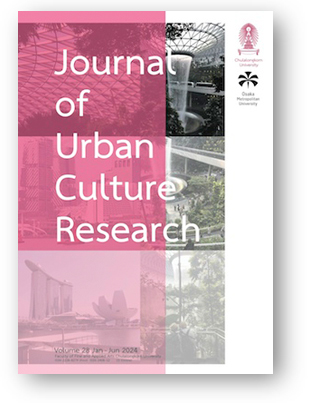Assessing the Niger Delta Residents’ Awareness on Socio-Culture Effect of Wetland Loss
DOI:
https://doi.org/10.14456/jucr.2024.15Keywords:
Wetland; Ecosystem; Degradation; Socio-culture Impact; Niger DeltaAbstract
The degradation of Niger Delta ecosystem is due to activities such as crude oil exploitation, agricultural activities, urbanization among others that affects the socio-culture impact of its dwellers. The study's aim was to assess the Niger Delta residents’ awareness on socio-culture effect of wetlands loss. This paper engaged the exploration of literature reviews, the randomly selection of communities in three Niger Delta states which includes Rivers, Bayelsa and Delta state and a questionnaire was utilized with 150 participants. The findings demonstrated that less awareness on the effect of wetland loss has impacted the residents. Also industrial activities have affected the wetlands and the health status of the dwellers where the loss of these wetlands have caused destruction as in flooding which had displaced many dwellers. Effective monitoring and enforcement of existing and new policies on conservation of these wetlands should be prioritized. Consequently there should be increased sensitization and awareness in the communities on environmental protection and conservation.
Downloads
Published
Versions
- 2024-07-07 (2)
- 2024-06-24 (1)
How to Cite
Issue
Section
License

This work is licensed under a Creative Commons Attribution-NonCommercial-NoDerivatives 4.0 International License.
Authors authorize the JUCR to publish their materials both in print and online while retaining their full individual copyright. The copyright of JUCR volumes is retained by Chulalongkorn University.
The views and opinions expressed herein are those of the individual author(s) and do not necessarily reflect the policies or opinions of the Journal (JUCR), it editors and staff, Chulalongkorn University, or Osaka Metropolitan University.







